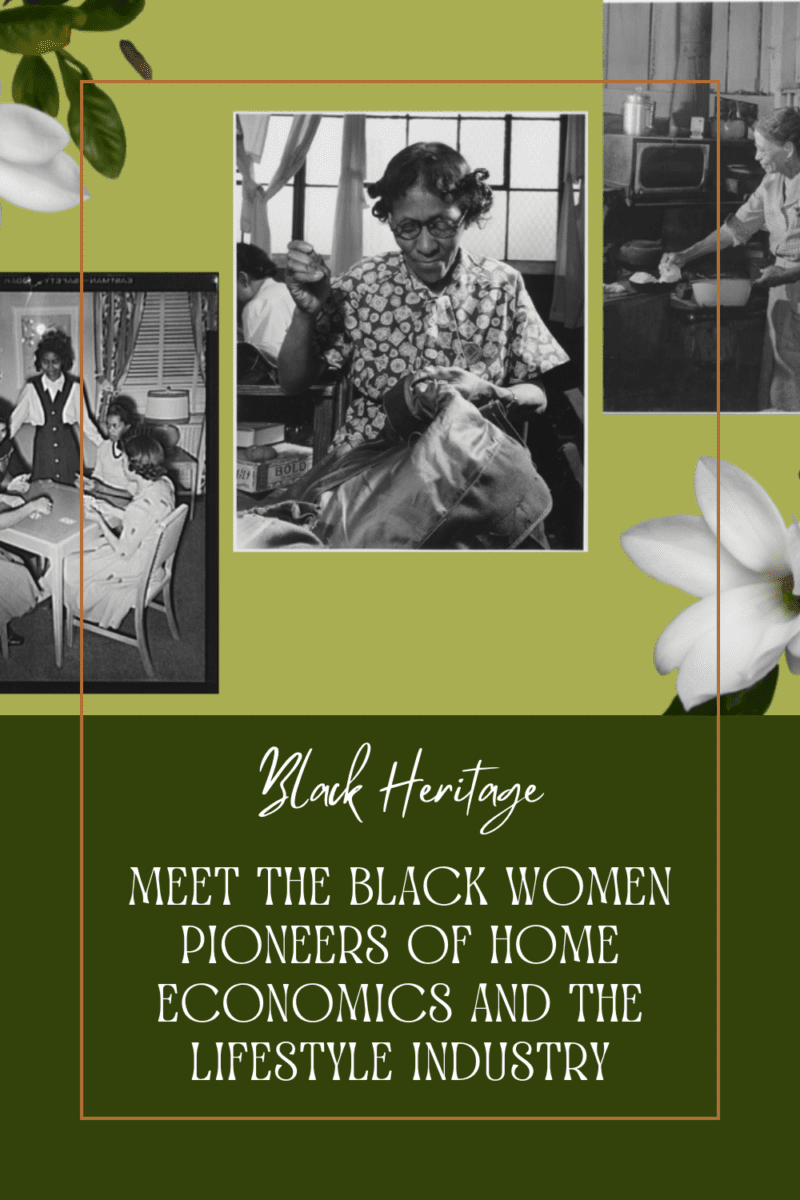
Few know that the late lifestyle expert Barbara “B.” Smith had a youthful encounter with a national homemakers organization for girls that left her a bit shaken. The organization’s local chapter wouldn’t accept her and other Black girls and teens join or participate in their activities. Though she was shaken, she created what she needed: her own organization. Young Barbara Elaine was determined and undaunted by the rejection. That one moment characterizes the woman she would become, and foreshadows her future in the media as a woman scores of other Black women found relatable in their understanding that home was a sanctuary. And like many of us, her first introduction to homemaking came from home, a parent and grandmothers who worked as domestics, and home economics training.
“Martha Stewart has presented herself doing the things domestics and African Americans have done for years. We were always expected to redo the chairs and use everything in the garden. This is the legacy that I was left. Martha just got there first.” – Barbara Elaine Smith
If nothing else, B. Smith on a worldstage, affirmed that ‘home’ and homemaking held a deeper meaning for Black women. Before her, HBCUs and schools like the Rosenwalds supported home economics or “the science of home” as more than pathways to working as domestics. Those programs and the women who ran them were revolutionary in that they influenced Black women to do for their homes what they’d done for others’ homes. And in some cases, they taught Black women how to create entrepreneurial endeavors as seamstresses, upholsterers, caterers, nutritionists and even as recipe testers and food editors such as Ebony magazine’s Charlotte Lyons, who studied at Atlanta’s David T. Howard High School and Morris Brown College.
Here is a pictorial history of Black women and home economics, including photos of the Black women who were pivotal in the movement to empower Black families with knowledge of food science.
Black High School Home Economics Programs
“Photograph of African American students in home economics class, Manchester High School, Manchester, Georgia, 1953.” 1953. February 15, 2024. http://dlg.galileo.usg.edu/pinemountain/do:bhtc53210.
Douglass, Neal. [Anderson High School Students in Home Economics Class], photograph, October 31, 1955; (https://texashistory.unt.edu/ark:/67531/metapth33640/: accessed February 15, 2024), University of North Texas Libraries, The Portal to Texas History, https://texashistory.unt.edu; crediting Austin History Center, Austin Public Library.
Lincoln High School Home Economics Class, Unknown Year, Ohio County Public Library, Wheeling WV.
Sewing class at Haines Normal and Industrial Institute, Augusta, Georgia. Georgia Augusta, 1899. Photograph. https://www.loc.gov/item/2003652513/.
Cooking class, Daytona Educational and Industrial Training School for Negro Girls. 1910 (circa). State Archives of Florida, Florida Memory. Accessed 15 Feb. 2024.<https://www.floridamemory.com/items/show/137890>
HBCU Home Economics
Home Economics, Canning Class, Atlanta University Center, Robert W. Woodruff Library
Schomburg Center for Research in Black Culture, Jean Blackwell Hutson Research and Reference Division, The New York Public Library. “Department of girls’ industries; “Practice cottage” for study of Home Economics, Tuskegee Institute, Tuskegee, Ala.” The New York Public Library Digital Collections. 1923-02. https://digitalcollections.nypl.org/items/510d47df-f28b-a3d9-e040-e00a18064a99
Parks, G., photographer. (1943) Daytona Beach, Florida. Bethune-Cookman College. Home economics students learning how to make good bread. United States Volusia County Florida Daytona Beach, 1943. Feb. [Photograph] Retrieved from the Library of Congress, https://www.loc.gov/item/2017845079/.
Home Economics Leaders
Women like Margaret Murray Washington (wife of Booker T. Washington) of Tuskegee Institute, Flemmie Pansy Kittrell, and Johnnie Hines Watts Prothro saw the possibilities of home economics as a way to offer empowerment to Black women. Margaret Murray Washington in her position as lady principal of Tuskegee created a curriculum that taught domestic skills but also skills that could provide an income such as millinery and clothes-making.
Flemmie P. Kittrell is the first Black woman to earn a doctorate in nutrition. Dr. Kittrell traveled the world and the United States teaching African and Black American girls and women how to include nutritious foods in their daily menus. Essentially, she taught food science. According to Wikipedia, “Her research focused on such topics as the levels of protein requirements in adults, the proper feeding of black infants, and the importance of preschool enrichment experiences for children.”
Johnnie Hines Watts Prothro graduated from Spelman with a degree in home economics. After obtaining graduate degrees, Dr. Prothro was both an associate professor of chemistry and a professor of home economics and food administration at the Tuskegee Institute. President Jimmy Carter appointed her to the Board for International Food and Agricultural Development.
Washington, Kittrell, and Prothro responded to the times in which they lived. Their work often was for Black women, men and families under the duress of Jim Crow laws and willful discrimination in larger home economics organizations and spaces. And they exceeded the work of the ones who excluded them by showing Black women and girls how to create the lives they deserved by creating the jobs, careers and homes they desired.




